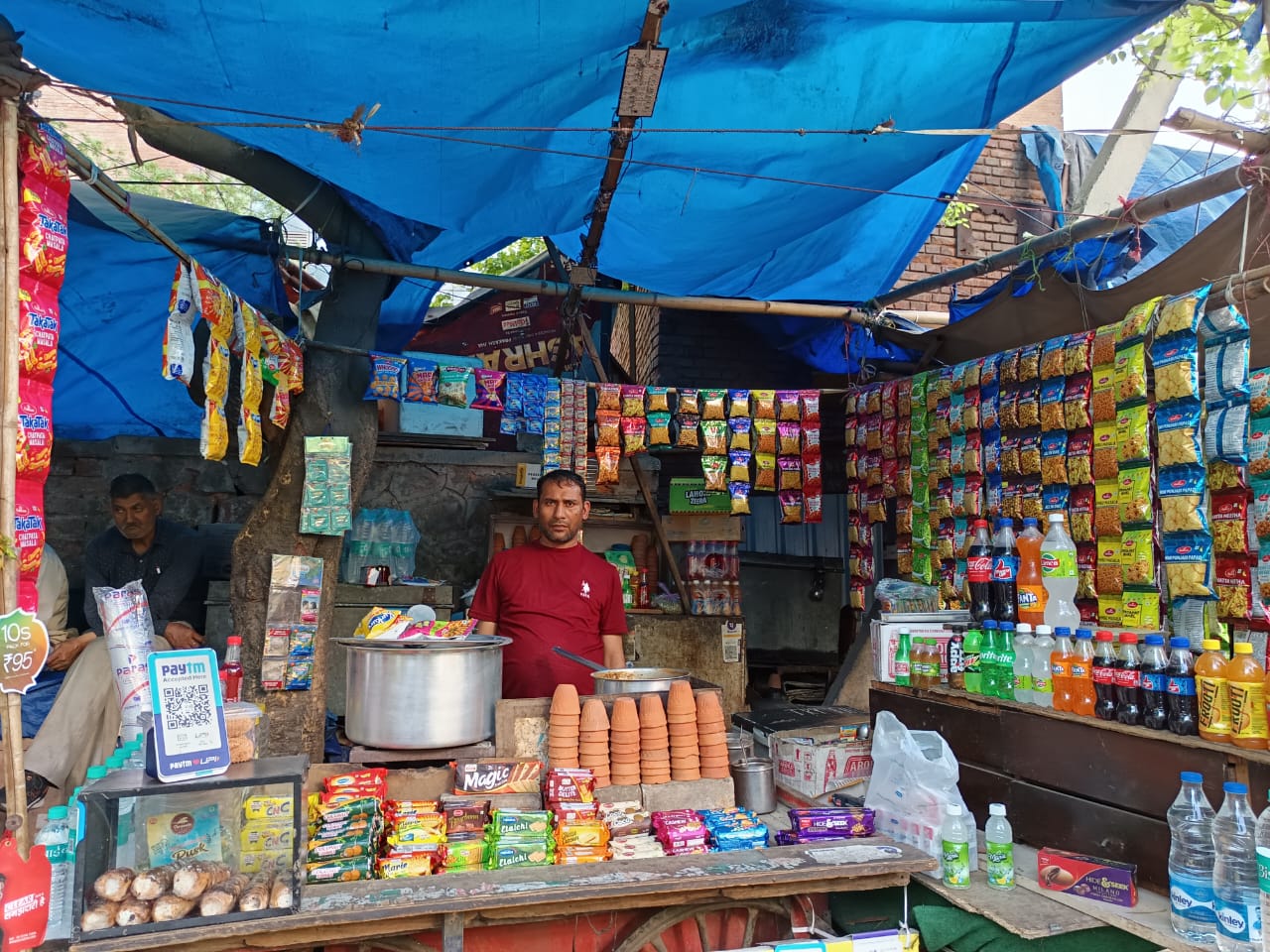Bhupender’s story epitomizes the struggles of street vendors in Delhi, highlighting the need for legal advice and aid.
Facing Unjust Challenges as a Street Vendor
It is often said that hard and honest work is the best way to earn a livelihood. However, when judicial forces set to protect one’s basic rights are unjust, simply the act of carrying out honest hard work becomes a fight for sustenance. Such is the story of Bhupender, a hardworking tea seller (chaiwala) from Rajendra Nagar Market, central Delhi. He has been an integral part of his local community for the past decade. Bhupender runs a small tea stall near the BLK-Max Super Speciality Hospital. This stall is his only means of livelihood to support his family through the earnings scraped together each day. Yet, like countless other street vendors, his path to securing a dignified livelihood is fraught with unnecessary, unwanted and unanticipated obstacles.
The Impact of Unlawful Challans on Street Vendors
On the morning of February 14th 2024, MCD officials visited Bhupender and other co-vendors’ shops in the Rajendar Nagar market. Bhupender, like other vendors of the area, has all the requisite legal documents to carry out vending activities such as the Certificate of Vending (CoV) and a Letter of Recommendation (LoR). Despite his efforts to explain that he possessed these valid documents, the MCD officials issued a challan against him under sections 357 and 397 of the Delhi MCD Act, 1957 for encroaching on public land and depositing waste. Both these sections deal with the question of cleanliness in the area including the disposal of garbage and other sanitary issues. The prescribed fine under these sections is Rs 50 each. However, when Bhupender appeared in the Metropolitan court on the appointed date, the judge imposed a fine of Rs 5000 and instructed him to pay it within 3 days. This amount might seem meager to many, however, for a street vendor who barely manages to earn Rs 400-500 a day, the amount is significant. The encounter left Bhupinder feeling helpless and vulnerable.
What happened with Bhupender is not an isolated event. Many vendors, not only in the Rajendra Nagar market but all around Delhi and beyond, share similar experiences. Such unlawful challans and evictions have become a part of every small scale urban entrepreneur’s routine and has turned earning a livelihood into a battle for them. One can ask , why street vendors? What can be done to help them? Weak and vulnerable, unarmed with the knowledge of their basic rights, street vendors have become an easy target for corrupt local officials. We at the Centre for Civil Society believe that by equipping vendors with knowledge of the legal structures in place to protect their rights, such as the Street Vendors Act of 2014, and by providing easily accessible legal aid free of charge, the present conditions of street vendors can be considerably improved.
The Role of Legal Empowerment for Street Vendors
The Street Vendors (Protection of Livelihood and Regulation of Street Vending) Act, which took effect on 01 May, 2014, is aimed at safeguarding the livelihoods of street vendors and regulating their activities across urban areas nationwide. This legislation addresses various issues pertaining to the protection of vendors’ rights, ensuring their social security, and managing urban street vending in a balanced manner that also promotes public welfare. Among its provisions, the Act calls for the establishment of Town Vending Committees (TVCs), mandates surveys of street vendors, and facilitates the resolution of disputes through Grievance Redressal Committees (GRCs). Street vendors, who constitute approximately 2% of the urban population, play a crucial role in the urban landscape, supporting themselves through various vending activities such as selling fruits, clothing, cooked and uncooked meals, and more. Preserving their rights is therefore imperative given their integral contribution to urban life.
Bhupender’s Journey Towards Justice as a Street Vendor
Keeping in mind the perils of street vendors and ethos of the Union Act, Center for Civil Society designed the Jeevika Mobile App, which is an accessible online platform that makes legal aid and advocacy available to the street vendors at the convenience of one click.
Fortunately for Bhupender, Veer Bhadra, a respected figure in the market, emerged as a ray of hope. Bhadra guided Bhupender to seek recourse through the Jeevika mobile app. Bhupender lodged a complaint on the app. With the assistance of the Jeevika team, an advocate was allotted to help Bhupender. With the advocate’s guidance, Bhupender lodged a complaint on February 15, 2024, marking the beginning of his journey towards justice. The wheels of justice, though initially daunting, began to turn in Bhupender’s favor. Despite the metropolitan judge imposing a substantial fine of Rs 5000 during the initial hearing on February 15, 2024, Bhupender refused to capitulate. Armed with determination and supported by the Jeevika team lawyer, Bhupender attended subsequent hearings, where the validity of his vending documents was vehemently defended.
A Victory for Street Vendors
On February 17, 2024, Bhupender’s perseverance bore fruit as the metropolitan court acknowledged the legitimacy of his vending documents. In a significant victory, the fine was reduced from Rs 5000 to Rs 500, aligning with the stipulations of the DMC Act. This outcome not only spared Bhupender from an unjust financial burden but also underscored the efficacy of legal support provided through initiatives like Jeevika mobile app.
The Broader Impact on Street Vendors
Bhupender’s account represents street vendors’ persistence in the face of adversity. Their everyday hardships often go beyond the everyday challenges of running a small stall, including the potential of harassment and exploitation. However, initiatives such as Jeevika mobile app provide a ray of hope for street vendors who need legal assistance and representation. The reduction in Bhupender’s fine demonstrates the power of constructive support and the commitment of initiatives like Jeevika to protect the rights of street vendors. Beyond legal successes, these achievements have broader cultural ramifications, indicating a greater awareness of the dignity and legitimacy of these nano-scale entrepreneurs and their contributions to the urban landscape.
As Bhupender continues to run his stall at Rajender Nagar market, his story serves as a reminder of the value of legal empowerment and collective action in protecting the rights of the street vendors.
Post Disclaimer
The opinions expressed in this essay are those of the authors. They do not purport to reflect the opinions or views of CCS.






